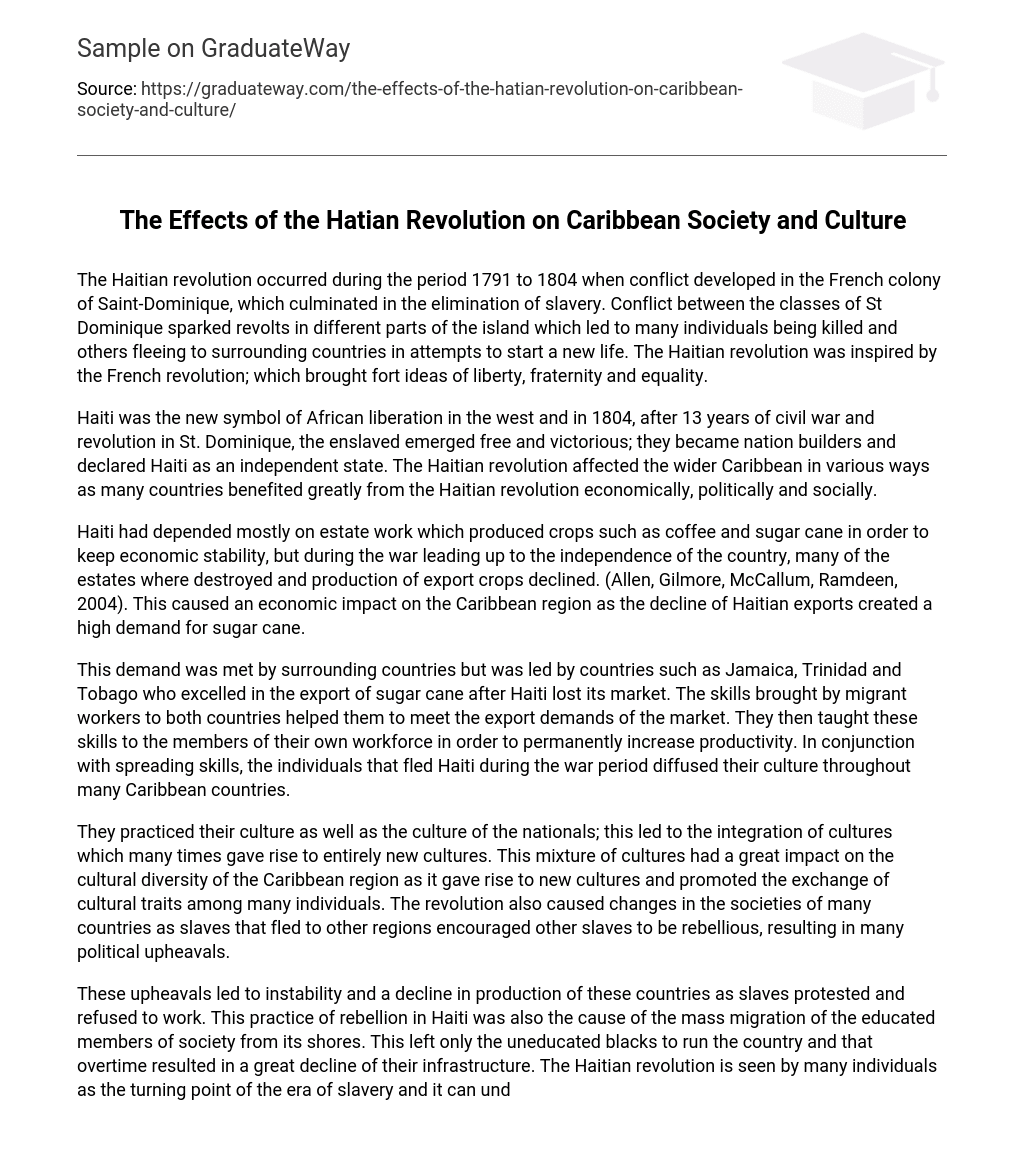The Haitian revolution occurred during the period 1791 to 1804 when conflict developed in the French colony of Saint-Dominique, which culminated in the elimination of slavery. Conflict between the classes of St Dominique sparked revolts in different parts of the island which led to many individuals being killed and others fleeing to surrounding countries in attempts to start a new life. The Haitian revolution was inspired by the French revolution; which brought fort ideas of liberty, fraternity and equality.
Haiti was the new symbol of African liberation in the west and in 1804, after 13 years of civil war and revolution in St. Dominique, the enslaved emerged free and victorious; they became nation builders and declared Haiti as an independent state. The Haitian revolution affected the wider Caribbean in various ways as many countries benefited greatly from the Haitian revolution economically, politically and socially.
Haiti had depended mostly on estate work which produced crops such as coffee and sugar cane in order to keep economic stability, but during the war leading up to the independence of the country, many of the estates where destroyed and production of export crops declined. (Allen, Gilmore, McCallum, Ramdeen, 2004). This caused an economic impact on the Caribbean region as the decline of Haitian exports created a high demand for sugar cane.
This demand was met by surrounding countries but was led by countries such as Jamaica, Trinidad and Tobago who excelled in the export of sugar cane after Haiti lost its market. The skills brought by migrant workers to both countries helped them to meet the export demands of the market. They then taught these skills to the members of their own workforce in order to permanently increase productivity. In conjunction with spreading skills, the individuals that fled Haiti during the war period diffused their culture throughout many Caribbean countries.
They practiced their culture as well as the culture of the nationals; this led to the integration of cultures which many times gave rise to entirely new cultures. This mixture of cultures had a great impact on the cultural diversity of the Caribbean region as it gave rise to new cultures and promoted the exchange of cultural traits among many individuals. The revolution also caused changes in the societies of many countries as slaves that fled to other regions encouraged other slaves to be rebellious, resulting in many political upheavals.
These upheavals led to instability and a decline in production of these countries as slaves protested and refused to work. This practice of rebellion in Haiti was also the cause of the mass migration of the educated members of society from its shores. This left only the uneducated blacks to run the country and that overtime resulted in a great decline of their infrastructure. The Haitian revolution is seen by many individuals as the turning point of the era of slavery and it can undoubtedly be seen that it had tremendous impacts on the society and culture of the Caribbean region.





